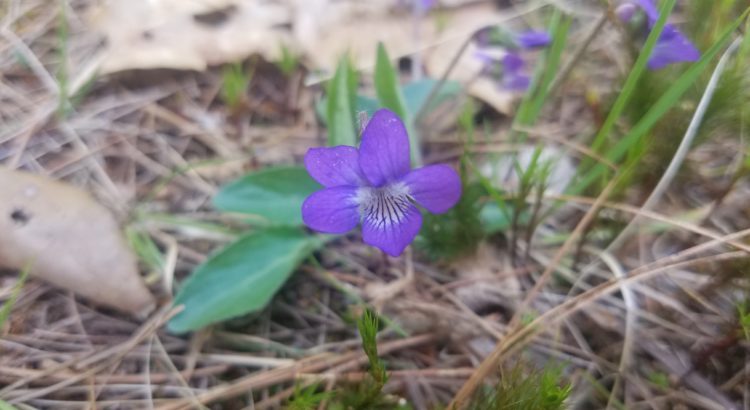By: Simone Maule, 2019 SCA Interpretive Ranger
Now that the warmer spring weather is here we have had a number of new neighbors pushing their way into the forest understory: wildflowers! Here is a closer look and some more information about a few of the common species you can find growing in Bear Brook State Park and all throughout Southern New Hampshire.
Bluets
Houstonia caerulea
Also called “Quaker Ladies”, this lovely and very tiny (the bloom is just one centimeter across) part of the madder family can be found growing in meadows, fields, and woodlands from April to July. There is a fantastic patch of it growing happily by Spruce Pond.
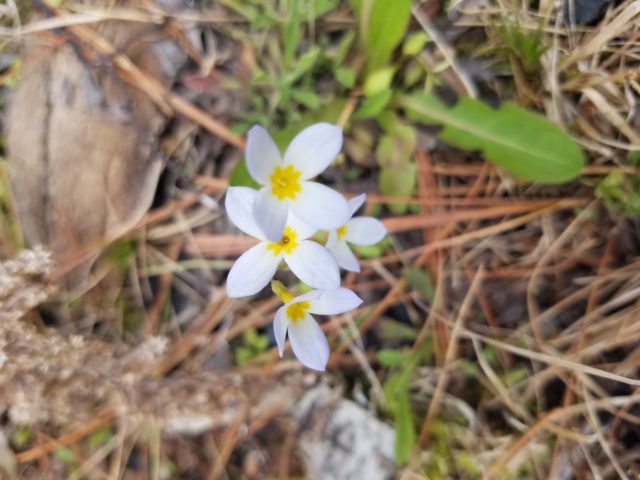
Hobblebush
Viburnum lantanoides
I spotted this fine specimen while hiking around Beaver Pond. Hobblebush is part of the honeysuckle family and is aptly named for its propensity to trip hikers with its upraised and obstacle-like root systems. It prefers moist, swampy areas, so keep an eye out for it near ponds and streams. Blooms are found in May and June and bright berries are seen on this plant from August to September.
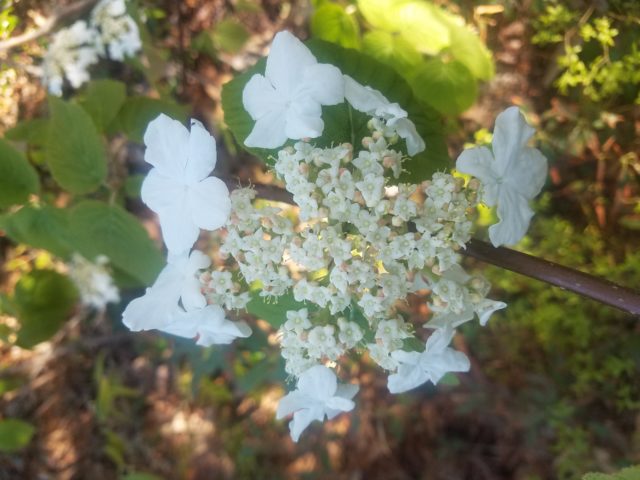
Pink Lady’s Slipper
Cypripedium acaule
The official state wildflower of New Hampshire since 1991, the Pink Lady’s Slipper is part of the orchid family. It is named for its striking resemblance to footwear, and blooms May through July in dry sandy soils. This one was found on display near Bear Hill Pond.
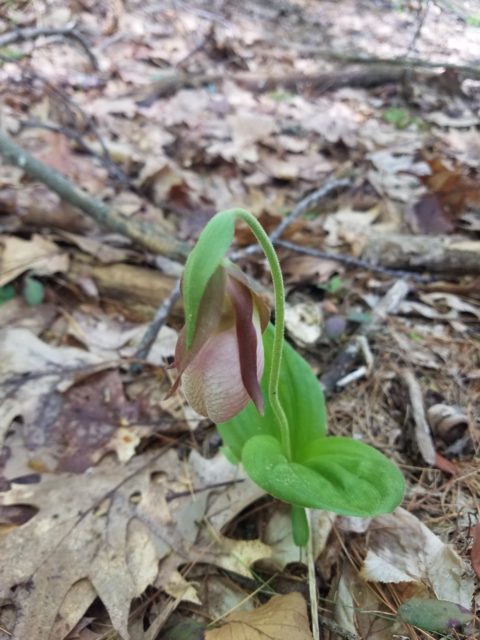
Painted Trillium
Trillium undulatum
Easily identifiable with its hallmark three leaves, this painted lady prefers acidic soils and shade, so look for it on the forest floor from April to June. This particular plant was observed on the Campground Trail.
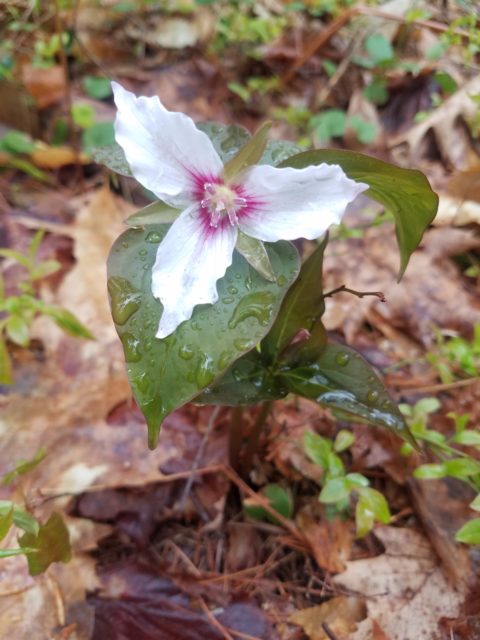
Common Blue Violet
Viola papilionacea
The common blue violet is a wonderful food source for native wildlife and blooms April to May in meadows, open areas, and moist woods. I have observed a patch of these violets growing next to the marshy area where Bear Brook passes under Podunk Road.
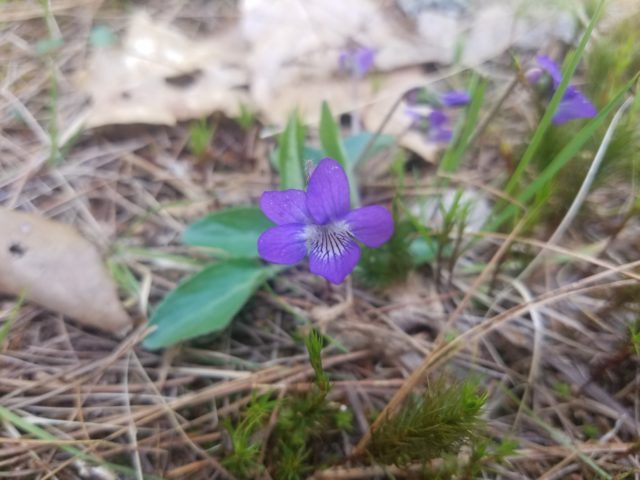
Fringed Polygala
Polygala paucifolia
Also known as flowering wintergreen for its close resemblance, Fringed Polygala is a part of the milkwort family. Delicate purple flowers bloom during May and June. This beautiful example was seen while hiking along the Bobcat Trail.
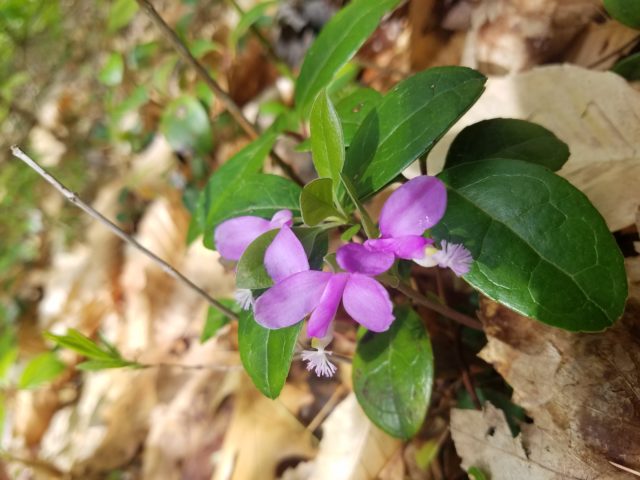
Canada Mayflower
Maianthemum canadense
I started seeing Canada Mayflower plants emerging from the soil in late April; once I spotted one, I began to notice them all over the park and now can’t walk anywhere without seeing them all around. They are a part of the lily family and enjoy wet boggy areas with plenty of shade. The tiny white blooms will turn into pale red berries later in the summer.
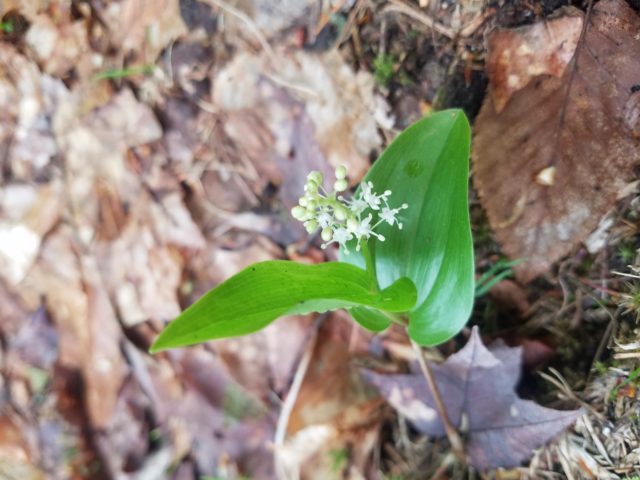
These are just a few examples of the dozens of different wildflowers you can find at this time of year. So next time you are out for a hike in your local state park keep an eye out for wildflowers. It’s also important to remember that they are a vital part of the ecosystem for native pollinators and wildlife so make sure you practice leave no trace and leave them where you find them. Happy exploring!

